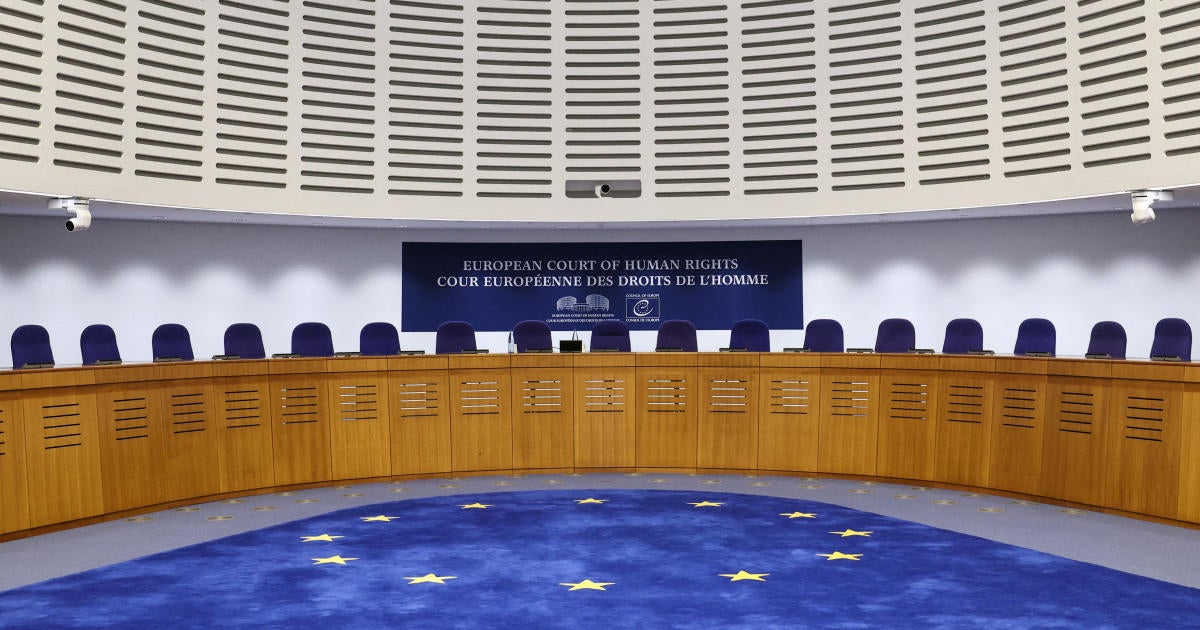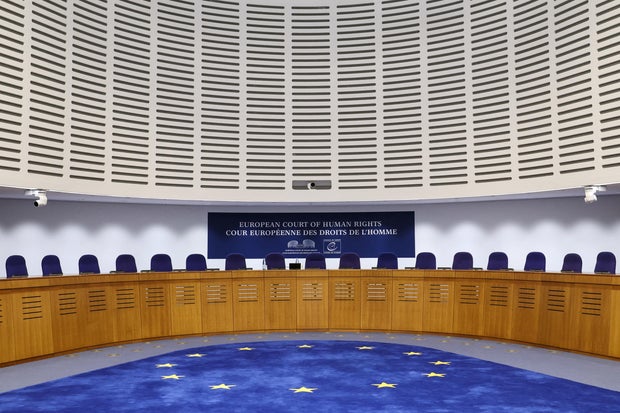
Europe's top court rules over woman who divorces husband because he stopped having sex with her
Europe's top human rights court ruled on Thursday in favor of a 69-year-old French woman whose husband was granted a divorce on the grounds that he had stopped having sex with her.
The European Court of Human Rights (ECHR) condemned France, saying a woman who refuses to have sex with her husband should not be considered “guilty” by the courts in the event of a divorce.
Court based in Strasbourg said that France had violated Article 8 European Convention on Human Rights, regarding the right to respect for private and family life.
It is said that any conception of marital duty needs to take into account “consent” as the basis of intercourse.
“From the perspective of the court, marriage cannot imply consent to further sexual relations,” said the court News releaseA number of “Such an interpretation would be that marital rape was reprehensible in nature. On the contrary, consent should reflect a free willingness to engage in sexual relations at the given moment and in specific circumstances.”
The decision came from a panel of seven judges from seven different countries. Spain, France, Armenia, Monaco, San Marino, Czech Republic and Ukraine.
The mother of four, who wished to remain anonymous, welcomed the verdict.
“I hope this decision will mark a turning point in the fight for women's rights in France,” she said in a statement. place their bodily integrity and right to privacy.”
The decision comes as French society debates the concept of consent.
Women's rights advocates have said the concept of “consent” should be added to French law that defines rape.
The woman did not complain about the divorce, which she also sought, but about the grounds on which it was granted, the court said.
“Marriage is no longer a sexual service”
The court identified him only as HUS, saying he lives in the western suburbs of Paris in Le Chesa.
“The court concluded that the existence of such a marital obligation contradicts sexual freedom, (and) the right to bodily autonomy.” statement He said from the court.
“Any non-consensual act of a sexual nature constitutes a form of sexual violence,” the statement added.
The Strasbourg-based court said the French courts had not struck “a fair balance between the two competing interests”.
“The petitioner's husband could have petitioned for divorce, presenting the irretrievable breakdown of the marriage as the main ground, and not as an alternative ground,” the court found.
The wife and JC were married in 1984.
The relationship between husband and wife worsened when their first child was born, and in 1992 the wife began to experience health problems.
In 2002, her husband began abusing her physically and verbally, the court said.
In 2004, he stopped having sexual relations with her and in 2012 he filed for divorce.
In 2019, the Court of Appeal of Versailles rejected the wife's appeals and sided with her husband, while the Court of Cassation rejected the appeal, without giving specific reasons.
He turned to the ECtHR, which acts as the court of last resort, where all domestic legal remedies are exhausted in 2021.
“It was impossible for me to accept and leave it,” said the woman.
“The Court of Appeal's decision to convict me was and is unworthy of a civilized society because it gave me the right not to consent to sexual relations, depriving me of my freedom to make decisions about my body,” he said.
“It strengthened the right of my husband and all husbands to impose their will.”
Her cause was supported by two rights groups, Fondation Des Femmes (Women's Foundation) and Collemif Feministe Contre Le Dow (Feminist Collective Against Rape).
Emmanuelle Pitt, head of the anti-rape feminist group, raised the court's decision.
“Ms. U spent fifteen years fighting this battle, and it ended in victory, Bravo,” she said. told Reuters news agencyA series of “When you are forced to have sex in marriage, it is rape.”
While French criminal justice abolished the conjugal duty in 1990, “Civil judges continue to enforce it through an archaic vision of marriage,” they said.
“From now on, marriage is no longer a sexual service,” says Delphine Zugebi, a member of the women's defense team. “This decision is more fundamental, considering that almost one out of two rapes is committed by a husband or partner.”
The ECHR is a member of the 46-member Council of Europe, which applies the European Convention on Human Rights and its decisions are legally binding and not advisory.
Frederick Florin / AFP Via Getty Images

